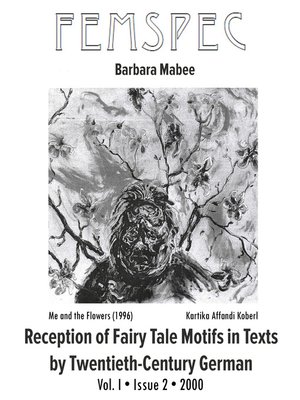Reception of Fairy Tale Motifs in Texts by Twentieth-Century German Women Writers, Femspec Issue 1.2
ebook ∣ Femspec Articles
By Barbara Mabee

Sign up to save your library
With an OverDrive account, you can save your favorite libraries for at-a-glance information about availability. Find out more about OverDrive accounts.
Find this title in Libby, the library reading app by OverDrive.



Search for a digital library with this title
Title found at these libraries:
| Library Name | Distance |
|---|---|
| Loading... |
This article discusses how cultural information and stories have been passed from one generation to the next. The fairy tales were restructured to focus more on the female's point of view. Some of these include stories with mothers and no fathers, depicting feminism and imagination in one. Critical and creative works by the Grimm brothers, Karl Marx, Jack Zipes, Anna Seghers, Christa Wolf, Ruth Bottigheimer, Maria Tartar, Sarah Kirsh, Madonna Kolbenschlag, Colette Dowling, Kay Stone, Claire Farrer, Geertje Suhr, Annette Laun, Sigrid Kellenter, Charles Perrault, Angela Carter, Helga Schubert, Margaret Atwood, Karin Struck, Clarissa Pinkola Estes, Franz Kafka, and Bruno Bettelheim were discussed. The focus is on resurgence of fairy tales with the fall of the Soviet regime in East Germany.







